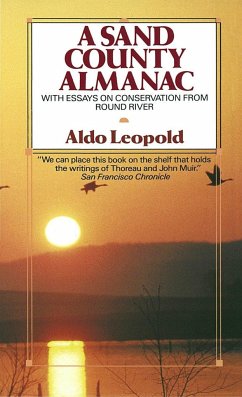"We can place this book on the shelf that holds the writings of Thoreau and John Muir." San Francisco Chronicle(at)lt;br(at)gt;(at)lt;br(at)gt;These astonishing portraits of the natural world explore the breathtaking diversity of the unspoiled American landscape -- the mountains and the prairies, the deserts and the coastlines. A stunning tribute to our land and a bold challenge to protect the world we love.
Approaches the prevalent issues in ecology from an aesthetic viewpoint, stressing the beauty and balance of nature.
Hinweis: Dieser Artikel kann nur an eine deutsche Lieferadresse ausgeliefert werden.
Approaches the prevalent issues in ecology from an aesthetic viewpoint, stressing the beauty and balance of nature.
Hinweis: Dieser Artikel kann nur an eine deutsche Lieferadresse ausgeliefert werden.

